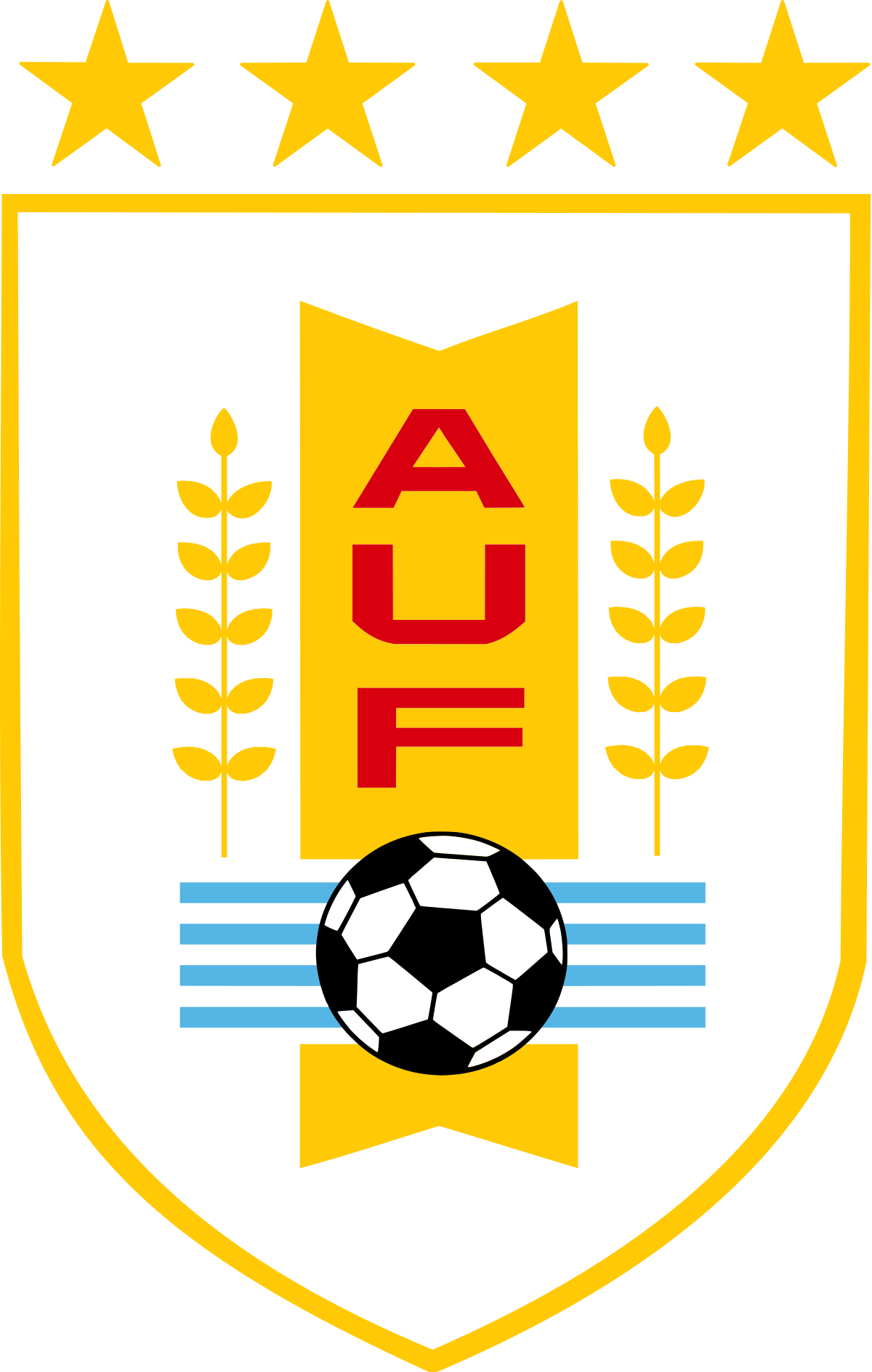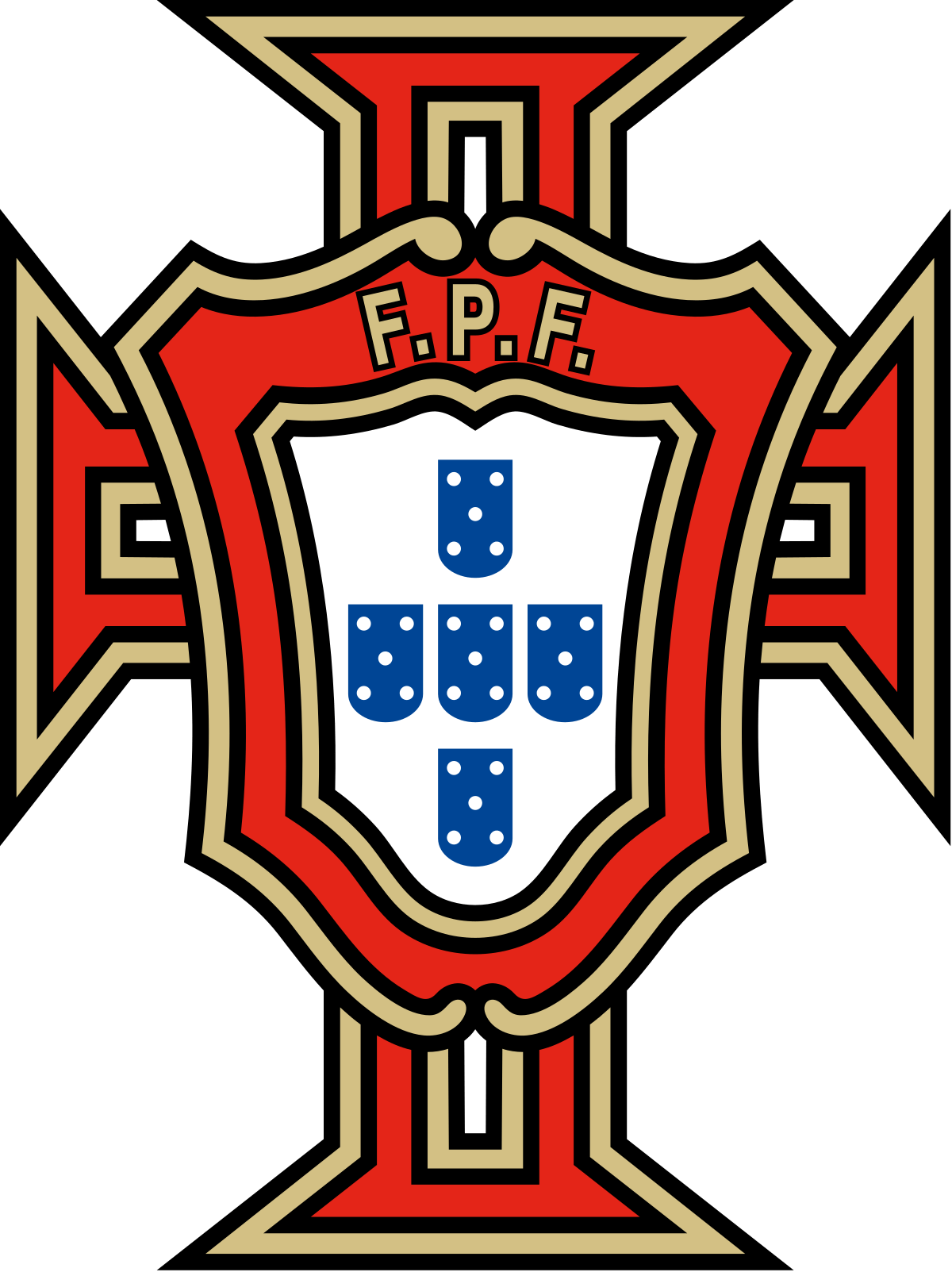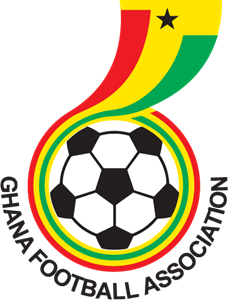
Uruguay (La Celeste)
Champions: 2 (1930, 1950)
Fourth Place: 3 (1954, 1970, 2010)
Quarter Finalists: 2 (1966, 2018)
Round of 16: 3 (1986, 1990, 2014)
Group Stage: 3 (1962, 1974, 2002)
Current FIFA Ranking: 14
Luis Suárez
Read More
Darwin Núñez
Read More
José María Giménez
Read More
Diego Alonso
Read More
Group H Schedule
Game 1 – Thursday 24th November 2022

South Korea
19:00 Qatar Time/16:00 GMT
Education City Stadium, Al Rayyan
Game 2 – Monday 28th November 2022

Portugal
22:00 Qatar Time/19:00 GMT
Lusail Iconic Stadium, Lusail
Game 3 – Friday 2nd December 2022

Ghana
18:00 Qatar Time/15:00 GMT
Al Janoub Stadium, Al Wakrah
Notable Honours
Despite a population of fewer than 4 million as of 2020, Uruguay have an incredibly impressive footballing pedigree. They boast two World Cup triumphs, including the inaugural tournament in 1930 and a second in 1950. Uruguay has also won the Copa America, South America’s premier footballing tournament, a staggering 15 times, equalled only by Argentina.
Brilliant Beginnings: Olympic, Copa America and World Cup Success
Prior to the first ever Copa America in 1916, Uruguay had played over 30 international fixtures – only one of which was not against rivals Argentina. This first edition of what was to become one of the most famous football tournaments in the world was to provide the Uruguayans with the opportunity to pit themselves against more varied opposition. Uruguay duly made the most of this opportunity, defeating Brazil and Chile and managing a draw with Argentina to lift the trophy. Uruguay then managed to repeat the feat the following year. In the following Copa America in 1919, Uruguay were defeated 1-0 by Brazil in a game which required two periods of extra time (in the days before penalty shootouts).
Uruguay went on to win Gold Medals at the 1924 and 1928 Olympic Games, showcasing a style of play centred around an innovative short passing game to which the opposition had no answer. It wasn’t just the Olympic Games that Uruguay would dominate. Further Copa America victories arrived in 1920, 1923, 1924 and 1926, as Uruguay were establishing themselves as perhaps the world’s premier footballing nation. As a result of this success, Uruguay were chosen as the hosts for the inaugural World Cup tournament in 1930. Winning all of their matches en route to their coronation as the first-ever World Cup champions, they defeated arch-rivals Argentina in the final 4-2, overcoming a 2-1 deficit to do so. The goals came courtesy of Pablo Dorado, Pedro Cea, Santos Iriarte and Hector Castro. Bella Vista defender José Nasazzi was to win the inaugural Golden Ball award for the tournament’s best player.
In response to snubs from European nations in 1930, Uruguay boycotted the 1934 and 1938 World Cup tournaments and encouraged other South American countries to do so, hence their absence from both tournaments. Another Copa America victory was to arrive in 1935. 1938 was particularly frustrating for the Uruguayans as FIFA reneged on a previous agreement to alternate the competition between European and South American hosts. 1934 and 1938 were thus held in Italy and France respectively.
Underdogs in Winning Their Second World Cup
In 1950, following a host of withdrawals, Uruguay were to participate in their first World Cup in 20 years due to boycotts and the Second World War, which resulted in no 1942 and 1946 tournaments. Owing to the withdrawal of France, Uruguay faced Bolivia in their only group-stage match, winning an embarrassingly one-sided game 8-0. The 1950 World Cup followed an unusual format in which the final was a four-team group-stage competition involving hosts Brazil, Sweden and Spain. Brazil had breezed into the de facto final game on the back of two one-sided victories against Sweden and Spain, winning 7-1 and 6-1. Uruguay, by contrast, had managed to draw with Spain 2-2 and left it late to beat Sweden, scoring two goals in the final 15 minutes to win 3-2 after trailing for much of the match. Brazil were rightfully considered to be huge favourites, so when Uruguay came from behind to beat them in the unofficial final, it was a huge upset. Goals from legendary playmaker Juan Alberto ‘Pepe’ Schiaffino and winger Alcides Ghiggia proved decisive following Friaça’s 47th-minute opener for Brazil. To date, only Uruguay and Italy had triumphed on the world stage.
In 1954, led by Schiaffino, Uruguay started the tournament with a swagger, defeating Czechoslovakia 2-0 before running rampant against Scotland, emerging with a 7-0 victory. The Uruguayans were able to see off England 4-2 in the quarter-finals before meeting pre-tournament favourites Hungary in the semi-finals. Uruguay came close to reaching a third final from three attempts. However, despite managing to take a hugely impressive Hungarian team to extra time, they eventually succumbed to a 4-2 defeat.
Period of Decline on the World Stage
Ultimately, Uruguay could not sustain this level of success, failing to qualify in 1958 and suffering a group stage exit in 1962, losing to both Yugoslavia and the Soviet Union. 1966 saw Uruguay fall to a comprehensive 4-0 defeat at the hands of finalists West Germany in the quarter-finals. Fortunes improved in 1970 when they secured a fourth-place finish. Navigating their group against strong opposition in Italy and Sweden with Israel bringing up the rear, Uruguay progressed at the expense of the Soviet Union following a 1-0 extra time victory. However, their tournament ended following a 3-1 defeat to the legendary Brazil side of 1970. A disappointing group stage exit in 1974 was to be Uruguay’s final tournament appearance until 1986 when they reached the round of 16 despite a poor group stage performance which saw them qualify as the 4th best 3rd placed team. Indeed, the stage campaign included a 6-1 hammering at the hands of a talented Danish team and a nervy 0-0 draw against Scotland. A creditable 1-1 draw against West Germany saw them face rivals Argentina, to whom they suffered a 1-0 defeat. In 1990, again Uruguay qualified for the round of 16 as the 4th third-placed team and thereafter slumped to a 2-0 loss against hosts Italy.
During this relatively lean period, Uruguay were surprisingly successful on their own continent, winning three Copa Americas in 1983, 1987 and 1995, led by the mercurial Enzo Francescoli. Against this backdrop, Uruguay could not qualify for either USA ’94 or France ’98. As a result, Uruguay plummeted to 76th in the FIFA rankings in 1998, leading many to question their previous status as a world power. A winless exit in the group in 2002 and another failure to qualify in 2006 appeared to confirm these suspicions.
Resurgence Under Oscar Tabarez
However, Uruguayan football has since enjoyed something of a revival. Benefiting from the talents of Luis Suarez, Edinson Cavani, Diego Godin, and Diego Forlan, amongst others, Uruguay qualified for three consecutive World Cups between 2010 and 2018 under the management of Oscar Tabarez. During this period, Uruguay lifted the Copa America trophy for a record 15th time in 2011, with goals from Suarez and Forlan (2) decisive against Paraguay in the final. Another fourth-placed finish was achieved in 2010. Following an undefeated campaign in a group containing France, Mexico and South Africa, a 2-1 victory over South Korea in the last sixteen was followed by a win over Ghana on penalties. These results saw them reach the semi-finals to face the Netherlands. While the eventual Golden Ball winner Diego Forlan found the net yet again, it wasn’t enough to progress to the final as the Netherlands won 3-2.
In 2014, Uruguay were drawn into the ‘group of death’ in which, surprisingly, both Italy and England were eliminated. Uruguay advanced second behind group leaders Costa Rica. A disappointing 2-0 defeat to Colombia followed. 2018 saw the Uruguayans win their group without conceding a goal, and a 2-1 victory over Portugal saw the Uruguayans pitted against eventual winners France. Though a 2-0 defeat ensued, Uruguay have again established themselves as World Cup knockout stage regulars. Despite being drawn into a tough group this time, they will be quietly confident of repeating the trick where favourites Brazil may lie in wait in the round of 16.
Road to Qualification
Group Position: 3rd
Record: Played:18 W:8 D:4 L:6 F:22 A:22 GD:0 Points28
Following a disappointing qualifying campaign in general, Uruguay left it late and rallied with 12 points from their final four games to secure automatic qualification under the leadership of new coach Diego Alonso following the dismissal of long-term coach Tabarez. In what could be Luis Suarez’s final World Cup campaign, the talismanic striker was instrumental in securing qualification, leading the way with eight goals. Flamengo attacking midfielder Giorgian de Arrascaeta also featured, with five goals to his name.
Meet the Coach: Diego Alonso (age 47)
Well-travelled Alonso has held managerial positions in Uruguay, Paraguay, Mexico and the USA. At Mexican club Pachuca, Alonso presided over a period of success which included winning the Liga MX Clausura (2016), the CONCACAF Champions League 2016/17 and achieving a third-place finish in the FIFA Club World Cup in 2017. He will want his Uruguay team to play with typical South American toughness in Qatar. They are a team of street fighters but also have considerable talent.
Possible Starting XI and Style of Play

It is possible that Alonso will seek to take full advantage of having both Luis Suarez and Darwin Nunez at his disposal and has trialled what is, in effect, a 4-2-2-2 formation with four centrally-minded midfielders. Varela and Napoli’s Olivera will provide the width, with Bentancur providing a calming influence in midfield. Federico Valverde is likely to play in an advanced position and will look to continue his excellent form with Real Madrid. Atletico defender Jose Maria Gimenez may be partnered with his former teammate Diego Godin. Ronald Araujo looks to be out, so Godin may have to play despite the illustrious defender currently being injured and not having seen much football over the last couple of seasons. Alonso has taken the opportunity to experiment with various formations and personnel in the lead-up to Qatar. This is perhaps unsurprising as he has a reputation for making tactical adjustments in-game and will want to be prepared for every eventuality. Alonso’s Uruguay tend to favour a more direct, aggressive approach. We may see Nunez employed as a traditional target man sometimes to hold up the ball and brings others into the game.
Squad List
Goalkeepers: Fernando Muslera, Sergio Rochet, Sebastian Sosa
Defenders: Ronald Araujo, Sebastian Coates, Martin Caceres, Guillermo Varela, Matias Vina, Mathias Olivera, Jose Maria Gimenez, Diego Godin, Jose Luis Rodríguez
Midfielders: Lucas Torreira, Matias Vecino, Rodrigo Bentancur, Manuel Ugarte, Giorgian de Arrascaeta, Nicolas de la Cruz, Federico Valverde , Facundo Pellistri, Agustin Canobbio, Facundo Torres
Forwards: Luis Suarez, Darwin Nunez, Maximiliano Gomez, Edinson Cavani
Key Players
Luis Suárez
Date and Place of Birth: (24.01.1987, Salto)
Current Club: Nacional
Caps/Goals: 134/68
Following his emergence and rise to prominence at Ajax in 2007, Luis Suarez has consistently been one of the most dangerous attacking talents in world football. A complete footballer, Suarez’s game marries technical brilliance, flair and footballing intelligence with a ruthless competitive streak which has occasionally boiled over but is crucial to his success. Very often playing ‘on the edge’, Suarez’s work rate has not diminished significantly with age. His ability to link the play will be as crucial as his proven ability to find the net.
Darwin Núñez
Date and Place of Birth: (24.06.1999, Artigas)
Current Club: Liverpool
Caps/Goals: 13/3
After a breakout season in 2021/22, which saw Nunez score 34 goals in 41 games for Benfica, including six goals in 10 European matches, he earned himself a big-money move to Champions League finalists Liverpool. Nunez’s potential has always been evident within the game, with Benfica breaking the Portuguese transfer record to bring him to Portugal from Almeria as a raw 21-year-old. Possessing superior physicality and off-the-ball movement, Nunez is able to make the most of half chances and can test the goalkeeper on multiple occasions in a typical match. He has experienced a slow start at Liverpool and Alonso will hope this will not affect him mentally in travelling to Qatar.
José María Giménez
Date and Place of Birth: (20.01.1995, Toledo)
Current Club: Atletico Madrid
Caps/Goals: 78/8
Hugely talented yet unfortunately relatively injury-prone, it is hoped that Gimenez can arrive in Qatar in peak condition. Gimenez can hold his own physically, with a reputation as a tough, tenacious defender, but it is his calmness on the ball and ability to bring the ball out of defence when required which lends itself well to tournament football. Gimenez’s aerial ability offers a significant threat from set-piece situations.
